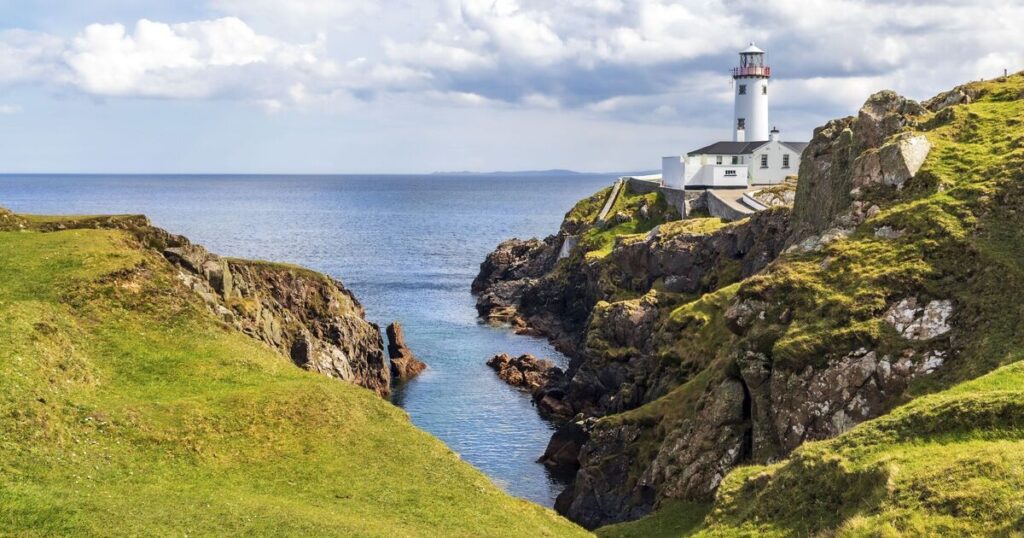
If you’ve ever daydreamed about packing it all in for a slower, more scenic life by the sea, there’s a scheme that might just make it happen – and it’s not too far from the UK. The Irish government is offering generous grants to people willing to move to one of its remote offshore islands and restore a vacant or derelict property.
The initiative falls under Ireland’s “Our Living Islands” policy, a ten-year strategy launched in June 2023 by the Department of Rural and Community Development and the Gaeltacht. The aim is simply to breathe new life into the nation’s 30 offshore islands that are not connected to the mainland by bridges and are cut off daily by the tide. “These islands are an integral part of the fabric of rural Ireland,” the government’s website explains. “Our ambition is to ensure that sustainable, vibrant communities can continue to live – and thrive – on the offshore islands for many years to come.”
The population of these islands has been dwindling for decades. According to government figures, fewer than 3,000 people now live across the 23 inhabited islands that qualify for the grant scheme. Some have just a handful of year-round residents, making community sustainability a real concern.
To tackle this, the government is offering grants worth up to €84,000 (approx. £75,000) for those willing to buy and renovate abandoned homes on these islands. The money comes through the Vacant Property Refurbishment Grant, part of the Croí Cónaithe (Towns) Fund, and was expanded in 2023 to include offshore communities.
The idea isn’t to simply hand out cash to anyone who fancies a move. Instead, the grants support the restoration of vacant or derelict properties into permanent homes or long-term rentals – helping tackle housing shortages while preserving historic buildings that might otherwise crumble away.
The exact amount you can receive depends on the condition of the property. For vacant properties, grants of up to €60,000 (around £50,000) are available. For derelict properties, the amount increases to €84,000 (around £75,000) to reflect higher renovation costs.
The funds can be used for everything from structural improvements (such as roofing, insulation and foundation work) to redecoration and modernisation. However, the property must become your primary residence or a registered long-term rental. Using the money to renovate a holiday home or set up a short-term rental like Airbnb is not allowed under the scheme’s rules.
Applicants don’t need to be Irish citizens – the scheme is open to anyone who meets the eligibility criteria, meaning Brits are welcome to apply. However, normal immigration rules still apply, so those relocating long-term may need to secure the appropriate visa or residency permission.
To be eligible, the property must:
-
Have been built before 2007
-
Have been vacant for at least two years at the time of application
-
Be located on one of the qualifying offshore islands that are cut off by the tide and not connected to the mainland by bridge or causeway
The list of eligible islands stretches along Ireland’s rugged west coast, scattered across the North Atlantic. These are places of wild beauty and distinctive culture – from the dramatic cliffs of Tory Island, the most remote of them all, to the tranquil Clare Island off County Mayo, or the sandy shores of Inishbofin.
Film fans may recognise Inis Mór, part of the Aran Islands, from The Banshees of Inisherin, which was shot there. Meanwhile, Dursey Island is the only place in Ireland connected to the mainland by cable car – an unmistakably unique way to get to your front door.
The grant scheme is just one of 80 actions in the 2023–2026 action plan. Others include rolling out high-speed broadband under the National Broadband Plan, setting up digital hubs, and improving access to online healthcare.
With Ireland only a short flight or ferry from the UK, the idea of relocating to one of these remote islands is starting to catch British attention. Similar initiatives in Italy and Spain have made headlines in recent years – like Ponga in northwest Spain, offering around £2,600 per person to relocate, or towns in southern Italy paying up to €30,000 to attract new residents.
But for Brits, Ireland has the major advantage of proximity. Flights from major UK airports to cities like Dublin, Cork or Shannon are quick and affordable, and from there, many of the islands are accessible via local ferries. The cultural similarities and lack of a language barrier are also appealing factors.
Applications for the Vacant Property Refurbishment Grant are open, with information available on the Irish government’s website gov.ie.
Local authorities manage the applications, and eligibility criteria can vary slightly depending on the island. Prospective applicants are encouraged to research the island communities, visit where possible, and assess renovation costs carefully before taking the plunge.
